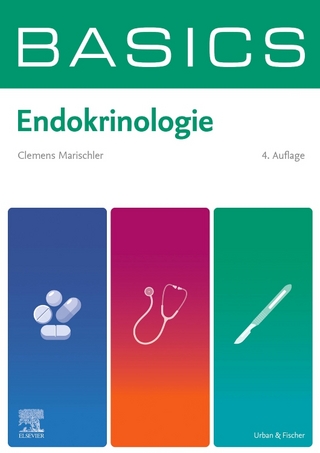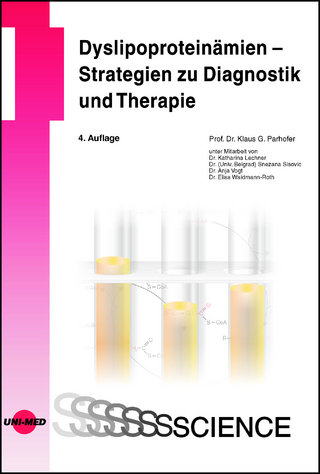
Obesity and Lipotoxicity
Springer International Publishing (Verlag)
978-3-031-63656-1 (ISBN)
This book is a comprehensive review of the recent research on the lipotoxicity-related mechanisms in obesity and the development of new treatment strategies. In this second edition, the possible molecular treatment methods and their recent clinical approaches are discussed in addition to the basic mechanisms that are available and thoroughly reviewed previously. Moreover, all chapters have been reviewed, according to the current concepts and seven new chapters are added, covering obesity-related epigenetic modifications, senescence, obesity-related cancer development, endocrine disruptors, as well as nanotechnology-based clinical approaches.
This book is an essential resource for clinicians and basic science researchers, such as biochemists, toxicologists, immunologists, nutritionists, adult and pediatric endocrinologists, and cardiologists, as well as all researchers or students who want to learn the mysteries of obesity.
A. Basak Engin-Research interests: Molecular aspect of obesity, immunotoxicological effects of nanomaterials and xenobiotic exposure, the pteridines and tryptophan metabolismneurotoxicological pathways. Prof. Engin received her undergraduate degree in Pharmacy and MSc. degree in Toxicology from Hacettepe University, in 1999 and 2002, respectively. She completed her PhD studies in Toxicology and Immunology at Gazi University, in 2008 and 2015, respectively. She is currently working at the same University, Faculty of Pharmacy, Department of Toxicology as a full professor, since 2018. Dr. Engin authored/co-authored several publications, book chapters and edited 4 books, including the first edition of "Obesity and Lipotoxicity". Her publications are cited more than 3000-times in international journals and books. She has been awarded Blair-Curtius-Pfleiderer-Wachter Award for Pteridine Research and Turkish Pharmaceutical Science Academy Young Scientist Award. Prof. Engin is an "European Registered Toxicologist" since 2014 and "Fellow of The Academcy of Toxicological Sciences" since 2018. She has been listed as the "World's top 2 % Scientists" since 2019 in the Study of Stanford University that evaluates more than 10 million top-scientists to provide a standardized scientific quality. Atilla ENGIN M.D., Ph.D. (in biochemistry). Professor of General Surgery at Gazi University Medical Faculty. Research interests: Molecular aspect of obesity, the effects of signaling molecules and exosomes on obesity, breast cancer and aging. Metabolic pathways in the crosstalk between neuronal and other cellular receptors. Prof. Dr. Engin after graduating from Ankara University, Faculty of Medicine, received his doctorate degree in Biochemistry from the University of Hacettepe and he completed Specialty Board Certificate in General Surgery in the Department of Surgery, Hacettepe University Faculty of Medicine. His doctoral studies led to discovery of the relationship between the cancer growth-rate and tissue glutathione concentrations, and these works have been cited for several times and won the "Science Award in Surgery". Prof. Dr. Engin is one of the pioneer scientists in experimental surgery. His nationally and internationally funded research projects' findings have been published in more than 100 articles in peer-reviewed journals and cited more than 3400-times in international journals and books. While some of these outcomes won national and international awards, some of them were registered and included into scientific databases. Prof. Dr. Engin has written 30 chapters in five international books and edited four of them, including the first edition of "Obesity and Lipotoxicty". Prof. Dr. Engin was trained on endocrine surgery with "The Japan International Cooperation Agency (JICA) fellowship award" in Japan. He attended "breast cancer and Milan trials" courses that were organized by The Breast Unit of the National Cancer Institute of Milan. He was among the founding members of the "Turkish Society of Endoscopic and Laparoscopic Surgery". In a publicly available database of more than 10 million top-scientists, that provides standardized scientific quality according to a global study that performed in Stanford University, Prof. Dr. Engin is ranked among the "top 2% scientists of the world" in both career-long data and one-year data rankings. CV Additional author(s)/Editor(s) Atilla Engin, dr.aengin@gmail.com, Gazi University, Faculty of Medicine
Chapter 1. The Definition and prevalence of obesity and metabolic syndrome.- Chapter 2. Circadian rhythms in diet-induced obesity.- Chapter 3. Eating and death: Chronic over-eating.- Chapter 4. New insights in the link between melanoma and obesity.- Chapter 5. Human Protein kinases and obesity.- Chapter 6. Fat cell and fatty acid turnover in obesity.- Chapter 7. Adipose tissue function and expandability as determinants of lipotoxicity and metabolic syndrom.- Chapter 8. What is lipotoxicity.- Chapter 9. The pathogenesis of obesity-associated adipose tissue inflammation.- Chapter 10. Microbiota and lipotoxicity.- Chapter 11. Endoplasmic reticulum stress and obesity.- Chapter 12. Insulin resistance, obesity and lipotoxicity.- Chapter 13. Adipose tissue hypoxia in obesity and its impact on preadipocytes and macrophages: Hypoxia hypothesis.- Chapter 14. Adipocyte-macrophage cross-talk in obesity.- Chapter 15. Endothelial dysfunction in obesity.- Chapter 16. Diet-induced obesity and the mechanism of leptin resistance.- Chapter 17. Influence of antioxidants on leptin metabolism and its role in the pathogenesis of obesity.- Chapter 18. Adiponectin-resistance in obesity.- Chapter 19. Non-alcoholic fatty liver disease.- Chapter 20. Lipotoxicity-related hematologic disorders in obesity.- Chapter 21. Micro-RNA and Adipogenesis: Impact of epigenomic and mutational regulation of diet-induced obesity.- Chapter 22. The interactions between kynurenine,folate, methionine and pteridine pathways in obesity.- Chapter 23. Eligibility and success criteria for bariatric/metabolic surgery.-Chapter 24. Does bariatric surgery improve lipotoxicity-associated comorbid conditions.- Chapter 25. Obesity-associated breast cancer: analysis of risk factors.- Chapter 26. Lipotoxicity in obesity: Benefit of olive oil.- Chapter 27. The checkpoints of intestinal fat absorption in obesity.- Chapter 28. Next-cell hypothesis: Mechanism of obesity-associated carcinogenesis.- Chapter 29. Targeted nano-based systems for the anti-obesity agents' delivery.- Chapter 30. Macrophage activation syndrome in coinciding pandemics of obesity and COVID-19: Worse than bad.
| Erscheinungsdatum | 20.09.2024 |
|---|---|
| Reihe/Serie | Advances in Experimental Medicine and Biology |
| Zusatzinfo | IX, 962 p. 69 illus., 51 illus. in color. |
| Verlagsort | Cham |
| Sprache | englisch |
| Maße | 178 x 254 mm |
| Themenwelt | Medizinische Fachgebiete ► Innere Medizin ► Endokrinologie |
| Studium ► 2. Studienabschnitt (Klinik) ► Pharmakologie / Toxikologie | |
| Schlagworte | Adiponectin • Adipose Tissue Hypoxia • Bariatric Surgery • Breast Cancer • Circadian Rhythm • Endothelial Dysfunction • fatty acid • Hematological disorders • insulin resistance • Leptin • lipolysis • Lipotoxicity • melanoma • microbiota • micro RNA • Non-alcoholic fatty liver disease • Obesity • protein kinases • Pteridine pathway |
| ISBN-10 | 3-031-63656-2 / 3031636562 |
| ISBN-13 | 978-3-031-63656-1 / 9783031636561 |
| Zustand | Neuware |
| Informationen gemäß Produktsicherheitsverordnung (GPSR) | |
| Haben Sie eine Frage zum Produkt? |
aus dem Bereich


